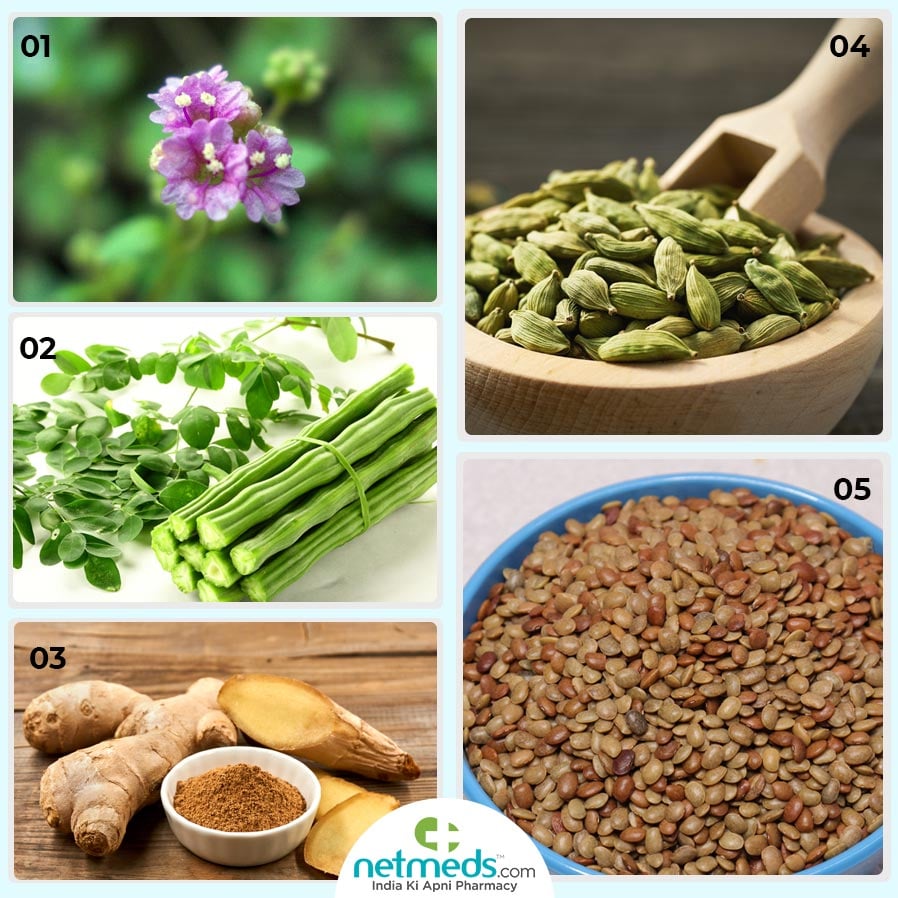To stay in the pink of health, it is not only crucial to safeguard the heart, brain, lungs and digestive system, but also to ensure the upkeep of the kidneys. The kidneys are two bean-shaped organs approximately fist-sized, reddish-brown in colour, situated directly below the rib cage, one each on the left and right side of the spine. Performing the key function of filtering the blood of impurities, the kidneys are responsible for eliminating waste materials, excess fluids from the body, maintaining mineral balance, blood pressure and conserving healthy bones, joints and red blood cell production, all while blood passes through them at least 40 times in a day. However, a very common ailment arises often in both adult men and women, which affects the renal organs and impedes the detoxification of the system, known as kidney stones.
Also known as nephrolithiasis or renal calculi, kidney stones are hardened deposits of minerals combined with salts – mostly calcium oxalate or uric acid, which develop inside the kidneys and also in the bladder, ureter, urethra, due to lack of sufficient fluid, along with crystallization and high acidic content in urine. Kidney stones trigger symptoms of intense pain in the lower abdomen, along with discomfort while passing urine, nausea, body weakness and headaches. Ayurveda defines kidney stones as “Mutrashmari” wherein “Mutra” implies urine and “Ashmari” translates to stones in Sanskrit.
The ancient ayurvedic scriptures of Sushruta Samhita, Ashtanga Hridaya, Charaka Samhita enlist the numerous causes of kidney stones. These comprise chiefly Asmashodhana i.e. improper body detoxification owing to poor diet, junk foods, high-oxalate foods, suppressing the natural urge to urinate, restricted bowel movements, besides other reasons of Ati Vyayama i.e. heavy exercise, Teekshnoushada i.e. prolonged intake of potent medications/drugs, Nidra Alpata i.e. loss of sleep. Another main factor is Apathya Sevana i.e. bad dietary practices of untimely meals, overeating, sedentary lifestyle, indigestion and obstructed metabolism, insufficient consumption of water post meals, all leading to imbalance of the three doshas – kapha, vata, pitta and solidification of excretory material forming kidney stones.
Also Read: Low-Oxalate Diet: Here’s Is What You Should Eat And Avoid To Prevent Kidney Stones
While intake of ample fluids and medicines prescribed by the doctor in the appropriate dosage certainly help in dealing with kidney stones, there exist several powerful ayurvedic herbs as well, which effectively eliminate renal calculi and detoxify the body for optimal overall wellbeing.
Amazing Natural Remedies For Kidney Stones:
Punarnava (Tar Vine)
Bearing the scientific name Boerhavia diffusa and commonly called tar vine, Punarnava is the traditional Sanskrit name as per the ayurvedic scriptures, which literally translates to “that which rejuvenates the body”. This flowering plant possesses astounding diuretic properties, which aid in flushing out kidney stones and decreasing surplus water retention and swelling in the system.
Shigru (Moringa/Drumstick)
The Moringa oleifera plant, be it the root, stem, or leaves, is a panacea for myriad health issues including kidney stones. With the Sanskrit name Shigru, the root extracts of this plant, commonly termed as drumstick, are crushed and prepared as a decoction to enhance functioning of the kidneys and resolve nephrolithiasis. Being rich in a plethora of antioxidants, namely flavonoids, quercetin, myricetin, carotenoids and glycosides, moringa removes detrimental free radicals and detoxifies the system.
Shunti (Ginger)
Known as shunti in Sanskrit in the age-old ayurvedic literature, the root derivatives of Zingiber officinale or ginger as it is commonly called, are widely utilized to treat kidney stones. Rich in gingerol – an excellent anti-inflammatory agent, as well as vitamin C and magnesium, the ginger root is minced or added in powder form and made as ginger tea, which when taken daily serves as a soothing renal tonic, eliminating rigid stone deposits and cleansing the kidneys.
Sukshma Ela (Cardamom)
Cardamom, an aromatic spice, referred to as Sukshma Ela in Sanskrit in Ayurveda and having the botanical name Elettaria cardamomum, contains a treasure trove of plant-based antimicrobial and antioxidant compounds. These work wonders in rectifying urinary tract infections, which often prompt kidney stone formation, aside from serving as a remarkable diuretic, removing the accrued fluids, calcium salts, uric acid residues from the body.
Also Read: Elaichi/Cardamom: Marvellous Health Benefits Of This Aromatic Condiment
Kulattha (Horse Gram)
Kulattha as it is known in Sanskrit in the time-tested ayurvedic manuscripts, is commonly called horse gram and has the botanical name Macrotyloma uniflorum. This tiny legume besides housing profuse amounts of carbohydrates, fibres, proteins, B vitamins that uplift digestion, metabolism and prevent kidney disorders, is also laden with antioxidants called isoflavones, which function as natural diuretics flushing out renal calculi. A soup or rasam prepared with horse gram is a proven herbal remedy to eliminate kidney stones, detoxify the body and augment renal wellness.
Frequently Asked Questions
What Is The Name Of The Plant That Removes Kidney Stones?
The most well-known plant that helps remove kidney stones is Phyllanthus niruri, commonly called “Stonebreaker”, “Chanca Piedra”, or “Keelanelli” (in Tamil).
It has been traditionally used in Ayurveda medicine for centuries.
The plant helps break down calcium deposits in the kidneys and promotes urine flow, aiding the elimination of stones naturally.
Other beneficial plants include Tribulus terrestris (Gokshura) and Boerhavia diffusa (Punarnava).
What Is The Fastest Way To Dissolve A Kidney Stone Naturally?
The fastest natural ways to help dissolve or pass small kidney stones include:
Drink at least 3–4 litres of water daily to flush out minerals.
Lemon juice (citric acid) helps break down calcium stones. Mix the juice of one lemon with warm water twice daily.
Mix about 1 tablespoon of Apple cider vinegar in a glass of water once daily can help soften stones.
Reduce salt, animal protein, and sugary drinks consumption.
These methods help small stones (less than 6 mm) pass more easily. For larger stones, medical intervention may be required.
Which Leaf Is Good For A Kidney Stone?
Several leaves have proven benefits for kidney stone relief:
Bryophyllum pinnatum (Patharchatta or “Life Plant”), its juice helps dissolve stones.
Banana stem and leaf extract promotes diuresis and reduces stone formation.
Tulsi leaves contain acetic acid that helps break down stones; drink tulsi juice with honey daily.
Punarnava leaves support kidney cleansing and reduce inflammation.
How To Clean Kidneys In Ayurveda?
Ayurveda offers holistic ways to detox and rejuvenate the kidneys:
Herbal remedies:
Punarnava (Boerhavia diffusa) cleanses the urinary tract.
Varuna (Crataeva nurvala) prevents stone formation.
Gokshura (Tribulus terrestris) improves kidney strength and urine flow.
Panchakarma therapies mainly include Virechana (therapeutic purgation) and Basti (herbal enema) for body detoxification.
(This article is reviewed by Kalyani Krishna, Chief Content Editor)
Author Profile:
M Sowmya Binu
With over 15 years of expertise and a Postgraduate degree in Nutrition, M Sowmya Binu is a seasoned professional in the field of nutrition. Specialising in tailoring personalised diet plans, she underscores the significance of a balanced approach to health, emphasising the integration of medication with dietary intake for holistic wellness. Passionate about equipping individuals with knowledge to make informed decisions, Sowmya adeptly develops insightful content encompassing various topics, including food, nutrition, supplements, and overall health.
References:
https://journals.lww.com/jism/fulltext/2024/12010/efficacy_of_ayurveda_medicine_in_renal_calculi.8.aspx
https://www.researchgate.net/publication/345162001_AYURVEDA_MANAGEMENT_OF_ASHMARI_KIDNEY_STONE_A_CASE_STUDY
AYURVEDA MANAGEMENT OF ASHMARI (KIDNEY STONE): A CASE STUDY
November 2020European Journal Pharmaceutical and Medical Research Ravindra B Ghaywate





 Previous
Previous